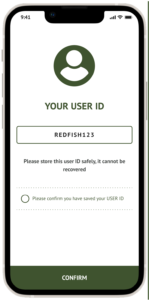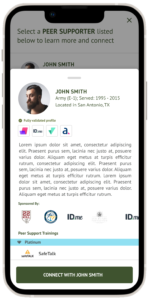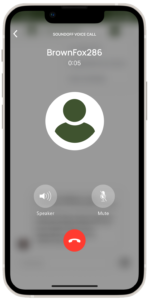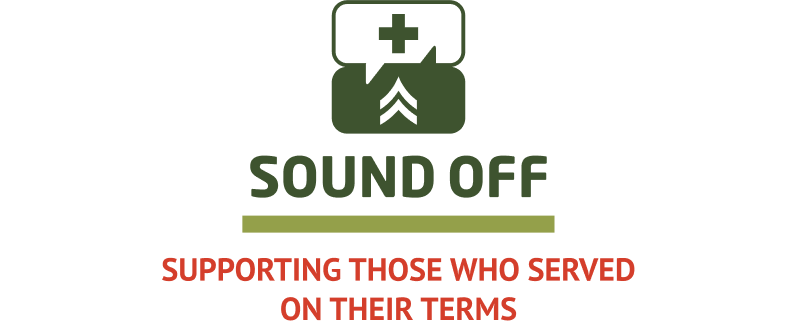

01
Professional Stigma
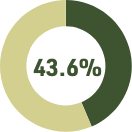
of post 9/11 Veterans fear seeking mental health support will harm their career.7
02
in Doctors
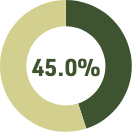
03

is the average wait time for treatment at a VA facility.3
04

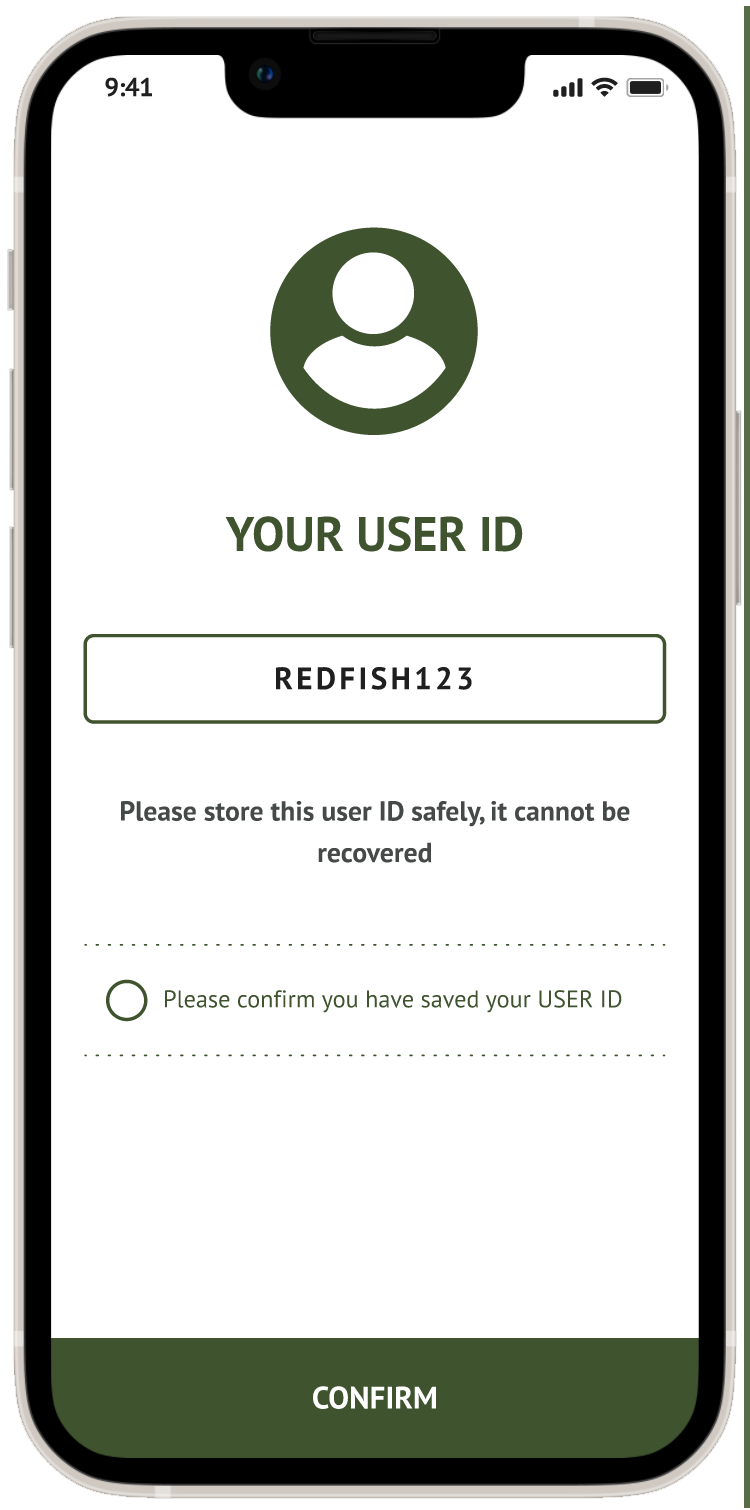
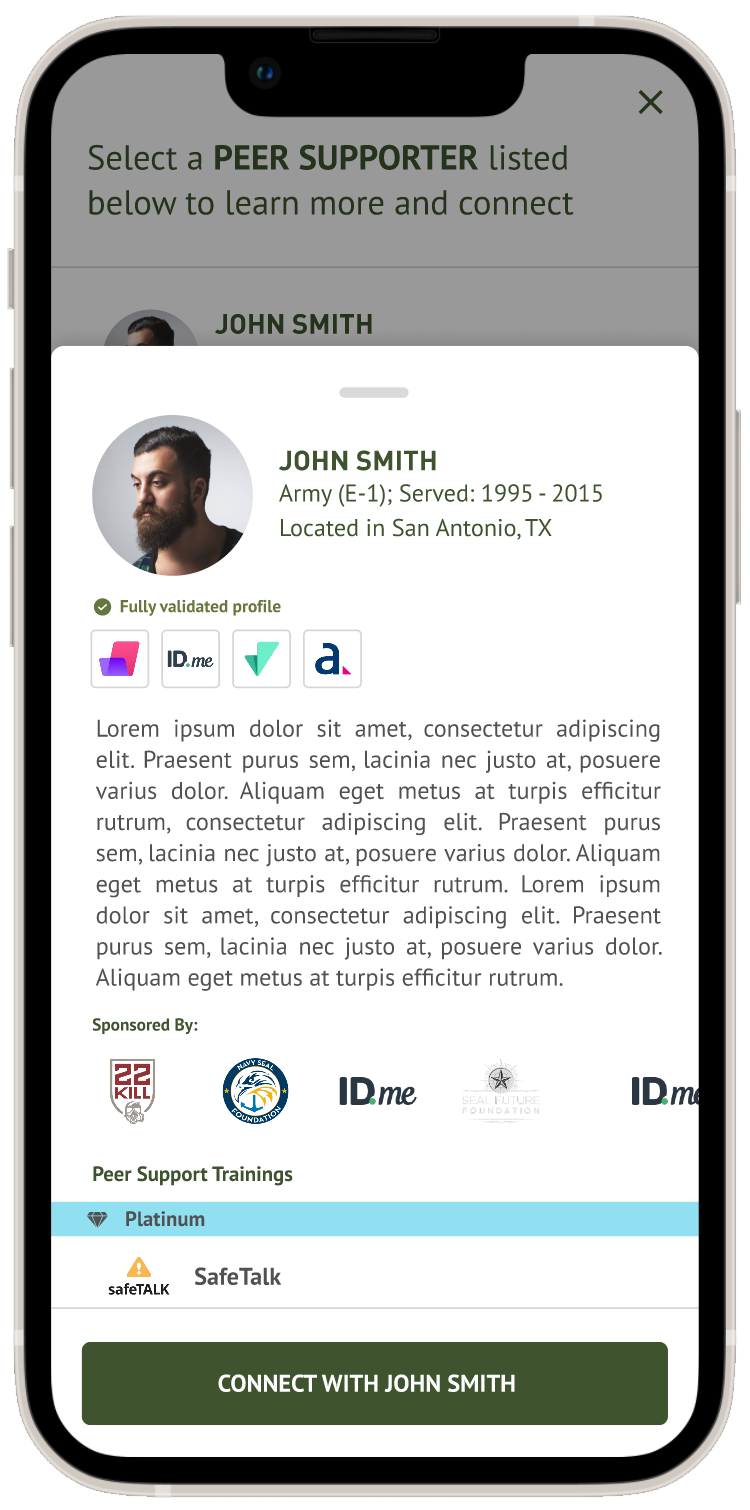
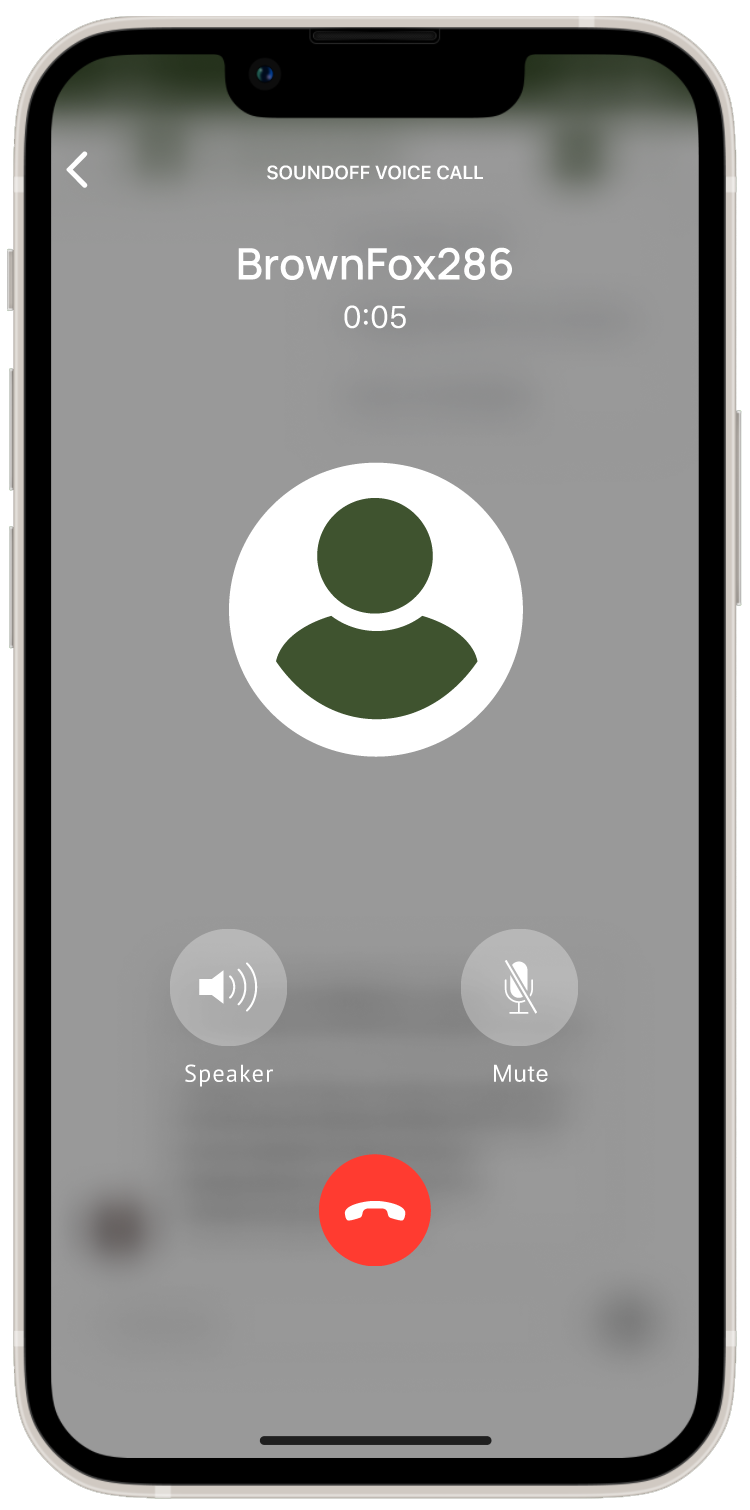
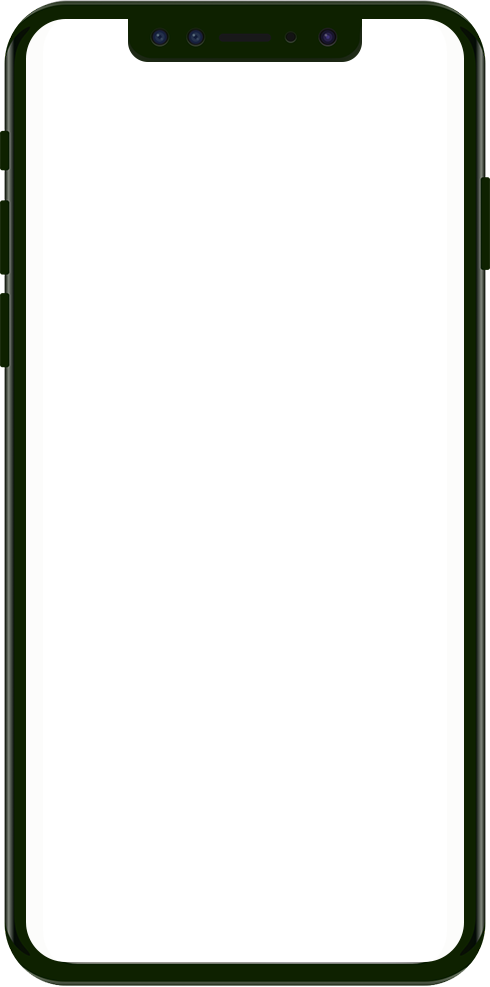



Sound Off is revolutionizing the way Veterans seek and receive mental health care. Just download the app, confirm your geographic region, and you’ll receive an anonymous, permanent username.
Veterans can choose to speak with a professional clinician or a screened, trained peer — a Peer Supporter who has walked the same path.
Calls are conducted via voip technology and messages are end-to-end encrypted – meaning Sound Off is free and completely anonymous.
Connect With Us

Clinicians & Peer Supporters
Sound Off partners with a generous network of volunteer clinicians and Veterans ready to offer support.
1 Wentling, N. (2018, June 20). VA reveals its veteran suicide statistic included active-duty troops. Stars and Stripes . Retrieved from https://www.stripes.com/news/us/va-reveals-its-veteran-suicide-statistic-included-active-duty-troops-1.533992 2 Holder, K. A. (2017). Veterans in Rural America: 2011-2015. American Community Survey Reports. 3 VA wait times for new appointments equal to or better than those in private sector . Retrieved from https://www.va.gov/opa/pressrel/pressrelease.cfm?id=5184 4 Tanielian, T., Woldetsadik, M. A., Jaycox, L. H., Batka, C., Moen, S., Farmer, C., & Engel, C. C. (2016). Barriers to Engaging Service Members in Mental Health Care Within the U.S. Military Health System. Psychiatric Services, 67(7), 718–727. doi: 10.1176/appi.ps.201500237 5 Tanielian, T., Jaycox, L., Schell, T., Marshall, G., Burnam, M., Eibner, C., … Vaiana, M. (2008). Invisible Wounds of War:Psychological and Cognitive Injuries, Their Consequences, and Services to Assist Recovery . RAND Center for Military Health Policy Research. doi: 10.7249/mg720.1 6 Tanielian, T., Jaycox, L., Schell, T., Marshall, G., Burnam, M., Eibner, C., … Vaiana, M. (2008). Invisible Wounds of War: Psychological and Cognitive Injuries, Their Consequences, and Services to Assist Recovery . RAND Center for Military Health Policy Research. doi: 10.7249/mg720.1 7 Tanielian, T., Jaycox, L., Schell, T., Marshall, G., Burnam, M., Eibner, C., … Vaiana, M. (2008). Invisible Wounds of War: Psychological and Cognitive Injuries, Their Consequences, and Services to Assist Recovery . RAND Center for Military Health Policy Research. doi: 10.7249/mg720.1
Sign Up for Our Newsletter
